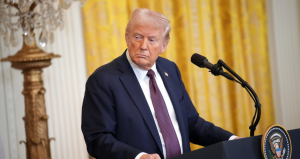I recall a time when, with every cent I had, I dedicated myself to chasing a long-held dream—becoming a mother. For years, amid the turbulent storms of heartbreak that etched my early adulthood, the vision of nurturing a child became a fragile beacon of hope. I spent nearly $30,000 in a desperate attempt to create a life that had always seemed just out of reach. Every procedure, every appointment, every quiet conversation with a doctor carried the weight of that yearning.
At the age of 38, I was forced to confront a devastating truth: my body had betrayed me. Despite my efforts, I learned that I would never be blessed with biological children. The words “I can’t have children” echoed relentlessly—repeated to doctors, murmured to friends, and whispered during moments when despair crept in unbidden. That phrase soon came to define a long, lonely refrain in my life—one that punctuated silent nights and haunted the reflective moments of my solitude.
I had built a life with my husband, Andrew, for nearly a decade—a life where, in spite of immense pain and loss, love still found a way to blossom. Andrew was no fairytale hero; he was far from a rescuer in shining armor. Instead, he was the dependable, steady presence who filled our home with practicality and comfort. He worked diligently to provide for us, steadfast and true. And yet, beyond the front door, when it came to the intimate labyrinth of family life, I discovered that the burden of parenting—and the vision of what it meant to be a mother—was a quest that I must carry on my own.
Day after day, I bore the responsibilities that would define a parent: cooking nutritious meals, managing the household, and enacting the routines that underpin a family’s daily rhythm. Yet, amid the gentle chaos of everyday life, the absence of the ability to bear my own children remained a silent, painful truth. I endured endless procedures, navigated countless clinic visits, and listened to clinical pronouncements of “infertility,” as if these were mere bullet points in a report of my life—a life I desperately wished I could rewrite.
That long, arduous process—brimming with hope, dashed expectations, tears, and quiet determination—unintentionally revealed to me what it truly meant to become a mother. It taught me that the essence of motherhood is not confined to the genetic miracle of childbirth but is found instead in the tender, selfless acts of care and sacrifice. It is about having the strength to build a family with whatever means are available to you. And so, after years of battling fate, I finally found a way to embrace my destiny—I became a mother, not through blood, but through adoption.
The day our adoption was finalized was a moment both triumphant and bittersweet—a day when hope overcame despair. I now have the most loving children in the world; their presence filled a void that I had long believed would remain unhealed. Yet, even as my heart soared with the joyful burden of parenthood, I soon discovered that our newfound happiness would be challenged by those who clung to outdated ideas about what truly constitutes a family.
Chapter 2: A Family Divided by Blood and Belief
Even in the midst of the deep love that bound our family together, the shadow of old beliefs lingered—an unspoken undercurrent that threatened to divide us. My husband, Andrew, always provided steadfastly and assured me in countless ways that our family was complete. But beneath that quiet support lay an implicit assumption rooted in a world defined by biological ties. Andrew’s own upbringing was steeped in the notion of “biological legacy”—the idea that family, and the love between a mother and her child, is most genuine when it is born of one’s own flesh and blood.
Andrew’s mother, Gloria, never hesitated to remind him of this ideal. She often boasted that she had raised him with the conviction that nothing in life was as authentic as what was created naturally. In every conversation that centered on family and legacy, Gloria would stress that the bond between a biological mother and her child was the purest form of love—an unbreakable contract sealed by nature itself. “Just imagine,” she would say with an almost bitter sweetness, “if your wife had tried harder, perhaps you’d have more than just what you provide.” Her words, though cloaked in concern, pierced my heart with their implication. Every utterance of this cherished myth left a little part of me feeling small and, at times, unwanted.
At home, the subtle psychology of our differing views on family began to erode my self-confidence. I often felt that the very foundation of our marriage was burdened by an unspoken comparison—a yardstick that measured worth solely by genetic ties. In every family gathering, especially during celebrations when my sister’s achievements were lauded in public while mine were downplayed, the contrast between those born of blood and those who came into a family through love became painfully clear. As the years passed, I internalized the notion that my contributions were somehow less significant, and I learned to mask my true self behind a veneer of silence—an armor forged in the fires of rejection.
Chapter 3: In the Face of Rejection
The deepest wound came not from the cruel world outside but from the people I had once considered my own. When Andrew and I began exploring the option of adoption, the prospect filled me with cautious optimism. Yet I could not shake the fear that my history—my secret of infertility—would be weaponized against me. It was a terror that had haunted me since my first relationship, when I had concealed my condition in a desperate bid not to lose the one person I loved most. That fear had become a shackle, binding me in silence and allowing sorrow to take root.
In one particularly agonizing memory, I recall a moment when Andrew, in a rare display of vulnerability, asked in a quiet tone, “Should we try again?” His words, laced with uncertainty and hope, reflected the silent negotiation that took place in our hearts every day. I felt an inexplicable mix of gratitude and crushing dread. The past, with all its painful echoes of loss, hovered large over our every step. I was terrified that if I revealed my secret once more—if I allowed our children, or worse, our loved ones, to know the truth—they would recoil and abandon me just as my first love had.
In the midst of this inner turmoil, I encountered a defining moment of clarity. One evening, in the solitude of our living room, I stumbled upon a video on TikTok—a video that captured the raw, unfiltered emotion of a little girl as she embraced a woman for the very first time, calling her “Mommy.” In that moment of unadulterated connection, tears began to stream down my face. The sight of that genuine, uncomplicated bond illuminated a path I had long thought was forever closed. In my heart, I recognized a possibility—a way to transcend biology and create a family bound not by DNA but by love. With trembling hands and a renewed sense of determination, I turned to Andrew and asked, “What if we adopt?”
The proposal, as simple as it seemed, shattered the chains that had long held me captive. Andrew, initially taken aback, soon met my gaze with a mixture of cautious excitement and the unmistakable spark of hope. “Two?” he teased, half in disbelief and half in playfulness, his words buoying my spirits even as the magnitude of the decision sank in. And so began our journey toward a new kind of family—a path paved with uncertainty, sacrifice, and ultimately, the promise of a love that knew no bounds.
Chapter 4: The Journey to Adoption
The process of adoption was not an easy one. It demanded not only financial sacrifice—demanding nearly every cent I had saved—but also an emotional fortitude that tested every fiber of my being. Every step of the way was fraught with bureaucratic hurdles, endless forms, and the constant anxiety that the dream might shatter before it fully blossomed. Yet throughout those trying times, I clung to the belief that family is defined by what we do for one another rather than by any genetic blueprint.
My husband and I poured over adoption guidelines, met with counselors, and attended support groups where strangers shared their own stories of loss and hope. These meetings revealed a common truth: many adoptive parents, like us, carried the scars of their past and the burden of societal judgment—but more importantly, they carried an unshakeable belief in the transformative power of love. Every story I heard made my resolve stronger and my heart more open to the miracle that lay ahead.
After countless months of waiting and navigating the labyrinth of the adoption system, our hearts finally swelled with the news we had been waiting for. We were to become parents, not through the miracle of birth, but through the love and compassion of adoption. I learned that our new family would soon be complete with the arrival of two wonderful children—a daughter named Amara, with deep, soulful eyes that held a quiet determination, and a son named Liam, whose gentle nature was symbolized by his cherished, battered teddy bear.
Chapter 5: The Bittersweet Victory
The finalization of our adoption came on a day that felt both triumphant and tinged with melancholy. In that moment, we celebrated a victory that had come at the cost of years of heartache and perseverance. As I held the legal documents in my hands, I could not help but feel that this accomplishment was layered with complexity—a bittersweet victory that mingled the joy of gaining the family I had always dreamed of with the lingering pain of the journey it had taken to get there.
I remember the day vividly. Andrew and I stood side by side in the courthouse, our faces a blend of determination and quiet joy. Although we had faced many setbacks and moments of crushing despair, we had never stopped believing that there was an alternative path to motherhood—a path that would allow us to build a family founded on love, resilience, and the power to choose. The moment the clerk stamped our documents, it felt as though the universe had tilted in our favor, affirming that our sacrifice and our pain had not been in vain.
The overwhelming relief I experienced was tempered by a profound realization: we had built our family through love, and nothing could ever diminish that truth. Yet, as the initial elation began to settle, a new challenge loomed—one that would test the very foundation of our redefined family.
Chapter 6: A Family Divided by Blood and Belief
Family, in its many forms, often comes with expectations—some rooted in tradition, some in deep-seated personal beliefs. For our family, the reconfiguration brought on by adoption sparked internal tensions that reached far beyond the walls of our home. Andrew’s own upbringing had been steeped in the belief that a family’s purity was measured by bloodlines. His mother, Gloria, had spent her life preaching that the most authentic form of maternal love was one forged by biology—the kind that only nature could bestow.
Gloria’s voice would echo throughout every family dinner and holiday gathering, subtly reinforcing the notion that love, while important, was secondary to the sanctity of biological descent. “If your wife tried harder,” she would often say, with an air of condescension that cut deep, “maybe you’d have a family that was truly complete.” Such words stung with the force of age-old prejudice, making me feel as though my very existence—and that of my adopted children—was somehow lacking.
I remember those moments of silent introspection when I would find myself questioning the validity of my choices. The love I poured into my life was real, but in the face of relentless reminders of what I could not be, self-doubt threatened to undermine my resolve. The daily struggle was not simply about accepting my own infertility—it was about challenging a narrative that prized biological bonds above all else. Every whispered comparison, every side-long glance, reinforced the painful reality that some in my extended family regarded my children as “less than” because they did not share my blood.
Andrew, ever the reliable anchor, reassured me that our family was whole, that the love we shared was the true measure of our unity. Yet, despite his comforting words, the unspoken beliefs of his mother and others in our circle cast long shadows over our joy. It was a battle fought not with weapons, but with every look, every comment, and every insinuation that belittled the wonder of our adoption. Our family was built on choice—a deliberate defiance of the cruel equation that equated value with biology. And yet, defending that truth against generations of entrenched notions was a struggle that tested my heart and my spirit.









